RHEUMAWELL™
HELPING YOU TAKE CHARGE
Rheumatoid Arthritis Question Asked: Is There a Natural Way to Stop RA from Getting Worse?
Analysis by Dr. Obianuju Okeke
Rheumatoid Arthritis Question Asked: Is There a Natural Way to Stop RA from Getting Worse?
Many people with rheumatoid arthritis often have questions about effective alternative approaches, so I want to document Rheumatoid Arthritis Natural Strategies.
Is There a Natural Way to Stop RA from Getting Worse? Here’s What You Need to Know:
Briefly, Rheumatoid arthritis (RA) is a chronic autoimmune disease that causes inflammation, pain, and swelling in the joints. As the immune system mistakenly attacks healthy joint tissue, those suffering from RA often seek ways to manage symptoms and slow disease progression naturally. Recently, this question arose in a community forum:
"Is there a natural way to stop RA from getting worse? I started taking CBD oil to try to cut back inflammation in my body. Any advice?"
If you’re asking yourself the same question, this blog will explore holistic approaches that may help manage RA symptoms, reduce inflammation, and improve overall well-being.
Understanding Rheumatoid Arthritis
Rheumatoid arthritis is more than just joint pain. It’s an autoimmune condition that requires a comprehensive approach to manage effectively. While medications prescribed by doctors are crucial in managing the disease, many people look to complement their treatment with natural strategies that align with their body’s needs.
Role of CBD Oil in RA Management
TheCBD (cannabidiol) oil has gained popularity as a natural anti-inflammatory agent. Studies suggest that CBD interacts with the endocannabinoid system (ECS) in the body, which plays a role in regulating pain and immune responses. By influencing ECS receptors, CBD may help reduce inflammation and pain associated with RA.
What the Research Says:
Anti-inflammatory Effects: Research shows that CBD can reduce inflammation by impacting immune cell activity, potentially providing relief from RA symptoms.
Pain Relief: Some studies suggest that CBD oil may help reduce pain in people with chronic conditions like RA.
CBD Oil Quality: Some individuals find relief from inflammation and pain using CBD oil.
However, it’s important to note that while some people find relief with CBD, the evidence is still emerging, and results can vary from person to person.
Ensure you're using a high-quality product.
Here is Why:
Supplements You Can Trust
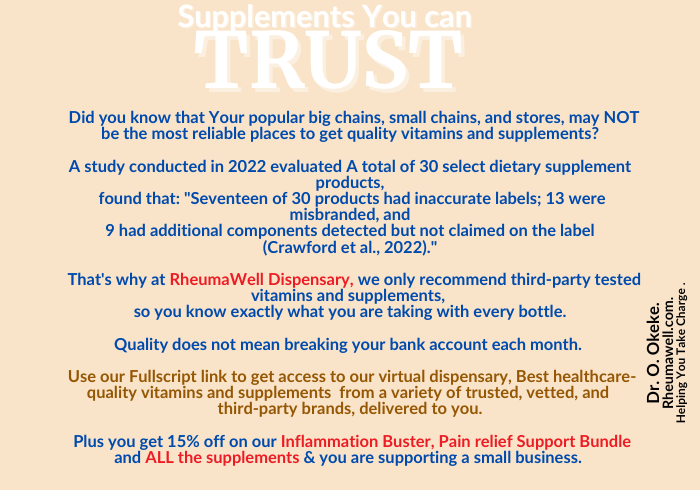
So Which Supplement Company Do I Work with & Why?
So To further on the quality of products consider this:

Beyond CBD oil, there are several natural strategies that can help manage RA symptoms and potentially slow disease progression.
Here are some evidence-based practices to consider:
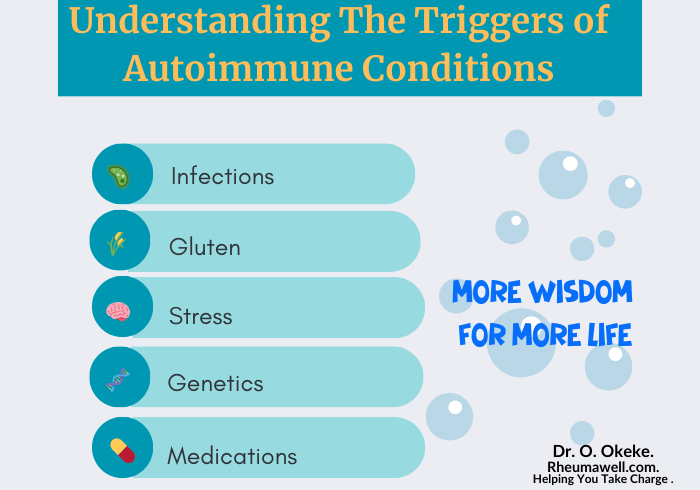
1. Diet and Nutrition:
How does Food Affect Arthritis? Arthritis is a disease of inflammation. Logical and effective treatment should consist of anything that fights inflammation. Specific foods you eat can either make inflammation in the body worse or can reduce the amount of inflammation produced by the body.
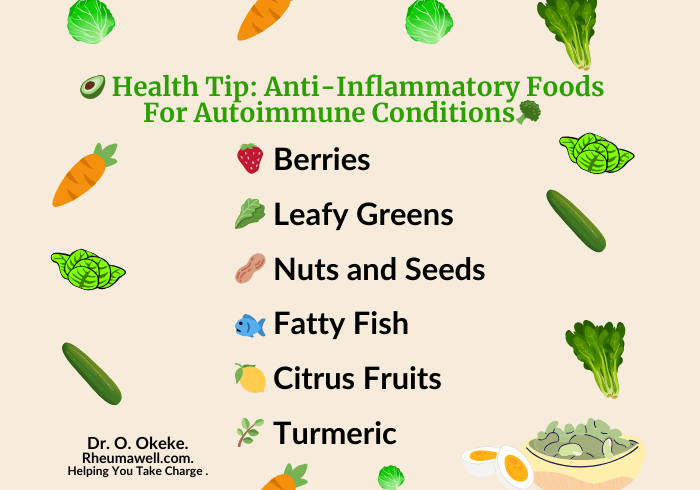
Nutrition is a science, but finding the right nutritional balance for each person is an art! It calls for the right professional assistance. What is good for one person is not always good for another. If you eat a balanced diet, your body can produce energy efficiently, fuel top performance and you will gain more power, strength, and endurance
The 6 Nutrients to Health include Carbohydrates, fat, protein, vitamins, minerals, and water. Yes, water is a nutrient.
Key Components:
Omega-3 Fatty Acids: Found in fatty fish like salmon, walnuts, and flaxseeds, omega-3s have anti-inflammatory properties.
Fruits and Vegetables: Rich in antioxidants, vitamins, and minerals, these help combat inflammation.
Whole Grains: Whole grains like brown rice and quinoa can reduce inflammation markers.
Healthy Fats: Olive oil, avocados, and nuts are great sources of healthy fats that fight inflammation.
Foods to Avoid:
Processed Foods: High in sugar and unhealthy fats, these can increase inflammation.
Red Meat: Some studies suggest that red meat may worsen RA symptoms due to its high levels of saturated fats.
Cues: Also pay attention to your body for cues.
Click here to get started on the Best Healthcare Supplements ===>>https://us.fullscript.com/welcome/rheumawell-dispensary
2. Herbal Supplements and CBD:
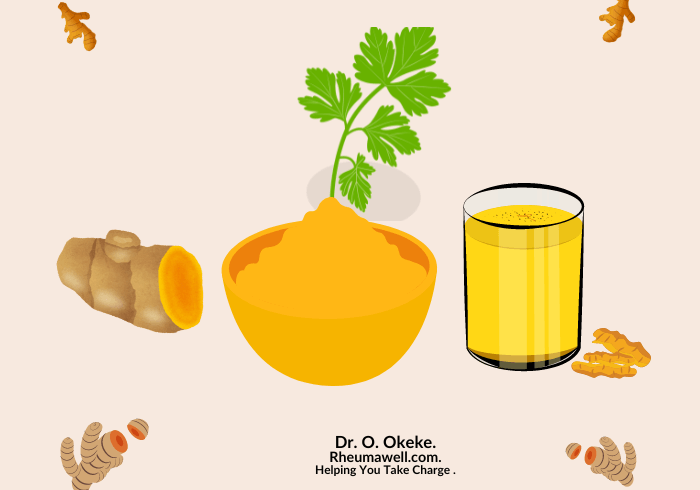
Turmeric and Curcumin: These have strong anti-inflammatory properties and can be taken as supplements or added to your diet.
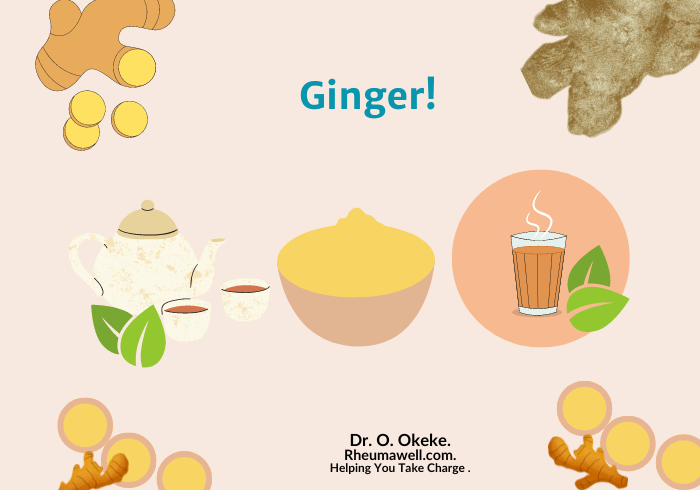
Ginger: Another powerful anti-inflammatory, ginger can be consumed fresh, as a tea, or in supplement form.
3. Regular Physical Activity:
Exercise is crucial in managing RA. It strengthens muscles around the joints, improves flexibility, and reduces inflammation.
Recommended Activities:
Low-Impact Aerobics: Walking, swimming, and cycling are great options that don’t stress the joints.
Strength Training: Building muscle helps protect joints from damage.
Flexibility Exercises: Stretching and yoga can help maintain joint mobility.
ElementsImportant Note: Always consult with a healthcare provider before starting any new exercise regimen, especially if you have RA.
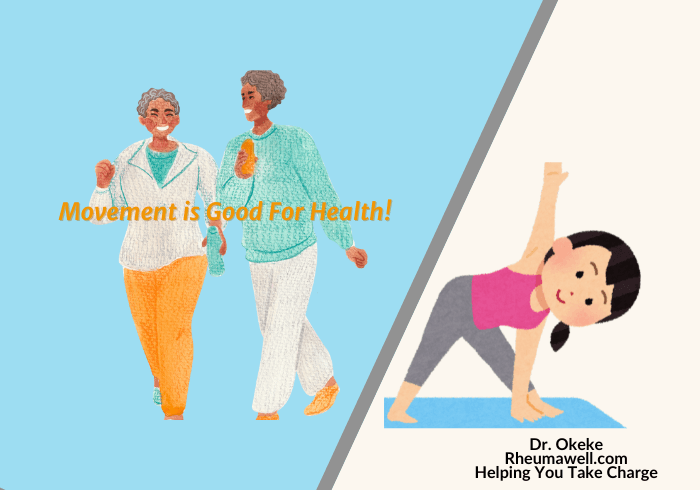
Gentle Exercise: Regular, low-impact exercises such as swimming, yoga, and walking can help maintain joint flexibility and reduce stiffness.
Strength Training: Helps to build muscle around the joints, providing better support and reducing strain.
4. Stress Management:
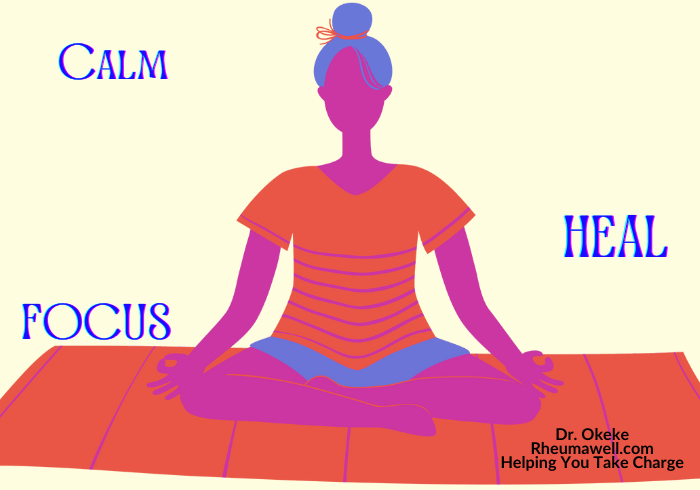
Mindfulness and Meditation: Practices such as mindfulness, meditation, and deep-breathing exercises can help reduce stress, which in turn can help reduce inflammation.
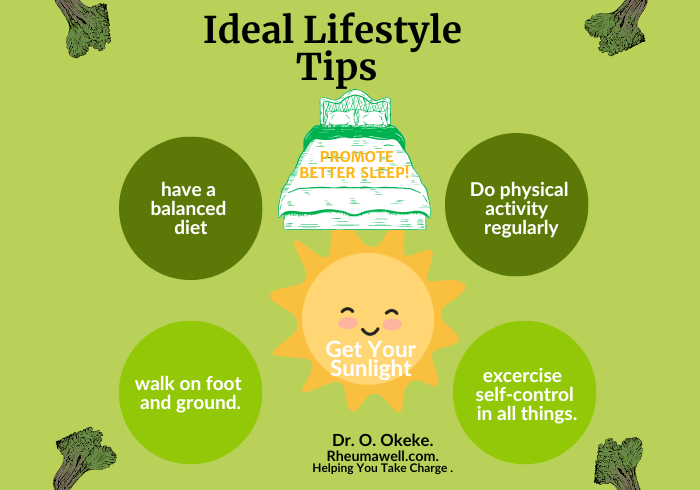
Adequate Sleep: Ensuring you get quality sleep is crucial for managing inflammation and overall health.
Restorative Sleep: Ensures proper recovery and supports healthy parasympathetic activity.
Sleep Hygiene: Maintain a consistent sleep schedule and create a restful seep environment.
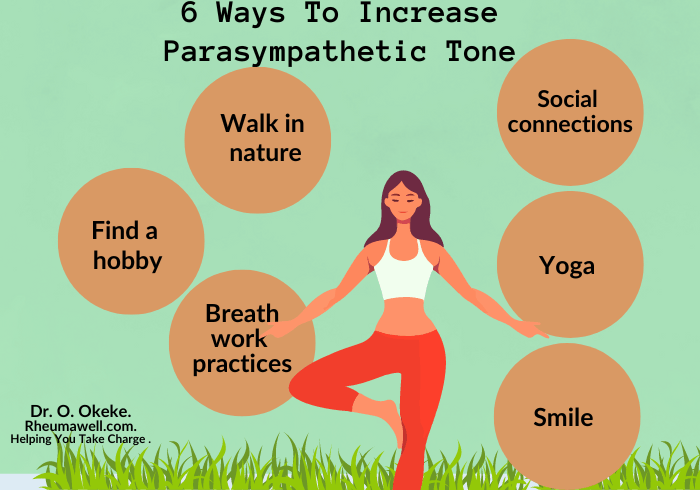
Increase Parasympathetic Tone: some people may not be familiar with this so I’ll provide more details but not overwhelm you.
Part of the Autonomic Nervous System
The autonomic nervous system (ANS) controls involuntary physiological functions and is divided into two main branches:
Sympathetic Nervous System (SNS):
Activates the "fight or flight" response during stressful or emergency situations.
Increases heart rate, dilates pupils, inhibits digestion, and releases adrenaline.
Parasympathetic Nervous System (PNS):
Promotes the "rest and digest" response during relaxed states.
Decreases heart rate, stimulates digestion, promotes energy storage, and supports relaxation and recovery.
Parasympathetic tone plays a critical role in maintaining the body's rest, recovery, and healing processes. Understanding and actively supporting healthy parasympathetic activity through lifestyle choices and relaxation techniques can lead to improved physical and mental health, better stress management, and enhanced overall well-being.
If you have specific health concerns or conditions, it's always advisable to consult with a qualified provider.
Adequate Parasympathetic Tone: Essential for recovery and restoration after stress, supporting processes like tissue repair, digestion, and relaxation.
Social Connection and Laughter
Positive Interactions: Spending time with loved ones and engaging in enjoyable activities can stimulate the PNS.
Laughter: Has been shown to increase parasympathetic activity and reduce stress hormones.
Nature Walks: Spending time outdoors in natural settings promotes relaxation and reduces stress.
An imbalance, such as chronic low parasympathetic tone, may contribute to various health issues, including chronic diseases, cardiovascular diseases, digestive disorders, and increased stress levels.
5. Alternative Therapies:
Acupuncture: Some people with RA find relief through acupuncture, which can help reduce pain and improve joint function.
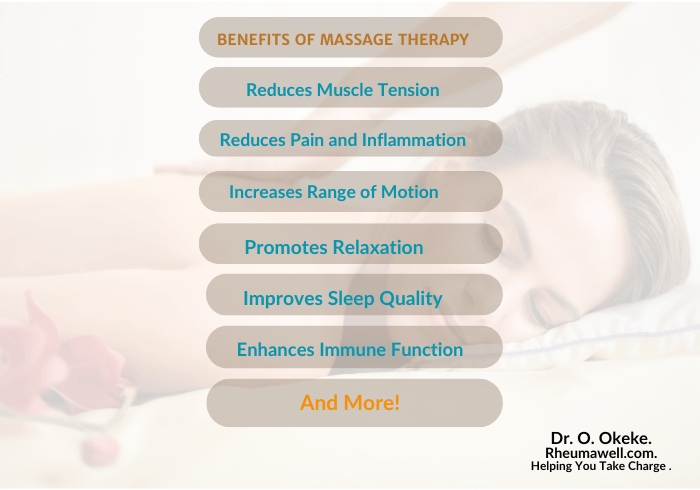
Massage Therapy: Massage therapy may be overlooked as important but it offers a wide range of benefits that support both physical and mental health. Regular massages can be a powerful tool for maintaining overall well-being and addressing specific health concerns.
Detailed Benefits of Massage Therapy:
Reduces Muscle Tension
Relieves tight muscles and knots, promoting relaxation and flexibility.
Improves Circulation
Enhances blood flow, which helps deliver oxygen and nutrients to tissues and organs.
Alleviates Stress and Anxiety
Lowers cortisol levels and triggers the release of endorphins, leading to reduced stress and improved mood.
Promotes Relaxation
Activates the parasympathetic nervous system, helping to calm the body and mind.
Enhances Immune Function
Stimulates the lymphatic system, aiding in the removal of toxins and boosting immune response.
Improves Sleep Quality
Reduces muscle pain and stress, which can lead to better sleep and more restful nights.
Reduces Pain and Inflammation
Decreases the perception of pain, helps manage chronic pain conditions, and reduces inflammation in the muscles and joints.
Increases Range of Motion
Improves flexibility and joint mobility, making it easier to move and perform daily activities.
Supports Mental Health
Contributes to a sense of well-being, reduces symptoms of depression, and improves overall mental clarity.
Promotes Better Posture
Alleviates muscle imbalances and tension that contribute to poor posture, helping to realign the body.
Speeds Up Recovery from Injury
Encourages tissue regeneration and reduces scar tissue, which can accelerate the healing process after injury.
Enhances Athletic Performance
Reduces muscle fatigue, improves recovery time, and helps prevent injuries in athletes.
Relieves Headaches
Reduces the frequency and intensity of tension headaches by relaxing the muscles and improving circulation.
Boosts Energy Levels
By reducing stress and improving circulation, massage can increase overall energy and reduce feelings of fatigue.
Improves Skin Health
Stimulates the skin, promoting a healthy glow and improving the skin's elasticity.
Assists with Detoxification
Facilitates the removal of metabolic waste from tissues, supporting the body's natural detoxification processes.
Reduces Blood Pressure
Lowers both systolic and diastolic blood pressure, contributing to overall cardiovascular health.
Enhances Emotional Well-Being
Provides a sense of comfort, nurturing, and emotional support, which can be particularly beneficial during times of stress or grief.
Improves Digestive Function
Stimulates the digestive system, helping to alleviate conditions like constipation and promoting overall gut health.
Balances Hormones
May influence the balance of hormones like cortisol, serotonin, and dopamine, improving mood and reducing stress-related symptoms.
Can help reduce muscle tension, improve circulation, and enhance overall well-being.
Relaxation: Massage can lower heart rate and blood pressure, enhancing parasympathetic response.
6. Hydration:
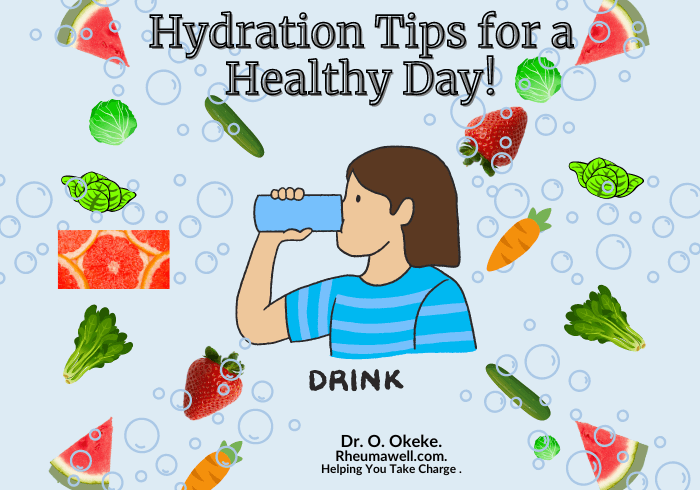
Stay Hydrated: Drinking plenty of water helps to keep your joints lubricated and can help reduce inflammation.
Drink before, during, and after activity to maintain hydration and avoid overheating
Drink small amounts of water frequently, not large amounts less often
Drink cooler beverages to cool your core body temperature and reduce excessive sweating
Sports drinks are beneficial for longer events, but may work better if diluted with water
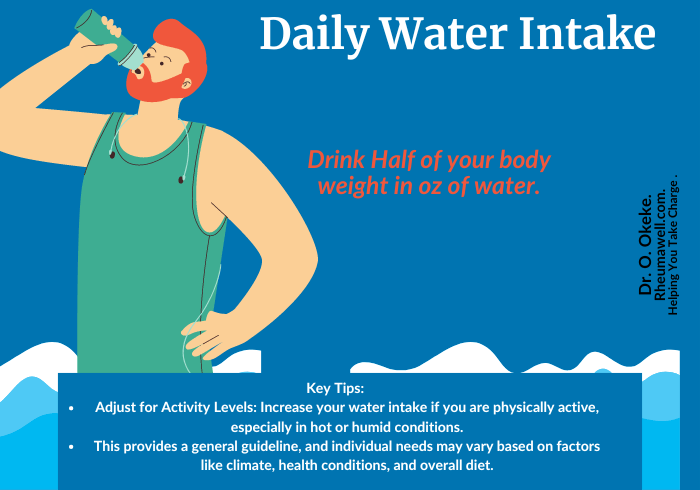
Drink "Half your body weight in ounces" rule
This recommendation is based on the idea that it provides an easy-to-remember formula for people to stay hydrated. It simplifies hydration needs but does not account for individual differences such as activity level, climate, or overall health.
While the "half your body weight in ounces" rule can serve as a rough estimate for daily water needs, it is more of a practical guideline than an evidence-based recommendation. For precise hydration needs, it is better to consider factors like physical activity, environment, and individual health conditions.
7. Mind-Body Connection:
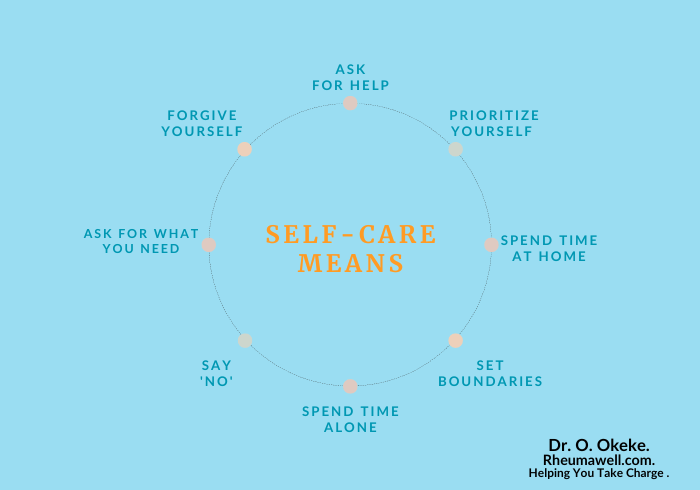
Emotional Wellness: Chronic conditions like RA can take a toll on mental health. Engage in activities that promote emotional wellness, such as journaling, spending time with loved ones, and engaging in hobbies you enjoy.
8. Consult with Professionals:

Holistic Health Practitioner: Consider working with a holistic health practitioner who can provide personalized guidance tailored to your unique needs.
Regular Medical Check-ups: Continue to have regular check-ups with your rheumatologist or healthcare provider to monitor your condition and make any necessary adjustments to your treatment plan.
Final Thoughts:
Combining conventional treatments with natural approaches may help manage symptoms and improve your quality of life. CBD oil, along with dietary changes, regular exercise, stress management, adequate sleep, and herbal supplements, can be part of a comprehensive RA management plan. However, it’s essential to work closely with your healthcare provider to tailor these strategies to your specific needs.
By exploring and incorporating these natural approaches, you may find relief and a better quality of life while living with rheumatoid arthritis. Remember, everyone's journey with RA is unique, so what works for one person may not work for another. Keep an open mind and stay proactive in managing your health.
Disclaimer: The information provided in this blog is for educational purposes only and should not be considered medical advice. Always consult with a healthcare professional before making any changes to your treatment plan.
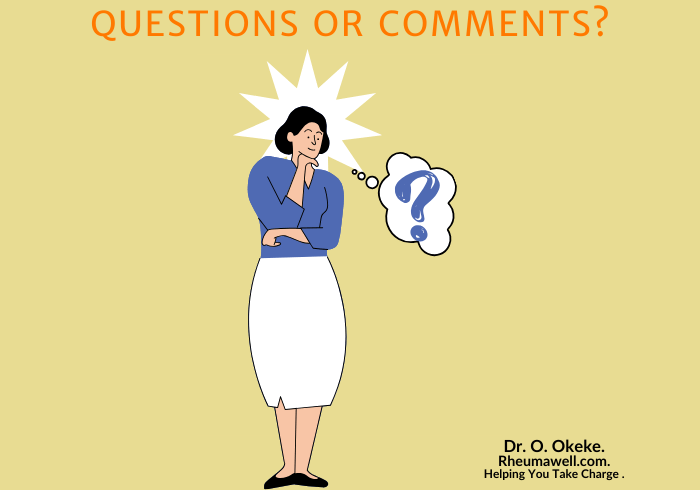
Question or Comment?
Wishing you all the best on your journey to better health!
Warm regards,
Dr. O. Okeke
Functional Holistic health Consultant.
Sources in This Article Include:
Citations:
CBD Oil and RA:
"Cannabidiol as an anti-inflammatory compound" (CBD and its anti-inflammatory effects): Burstein, S. (2015). Cannabidiol (CBD) and its analogs: A review of their effects on inflammation. Bioorganic & Medicinal Chemistry, 23(7), 1377-1385. doi:10.1016/j.bmc.2015.01.059.
"CBD Oil and Rheumatoid Arthritis": Hammell, D. C., Zhang, L. P., Ma, F., Abshire, S. M., McIlwrath, S. L., Stinchcomb, A. L., & Westlund, K. N. (2016). Transdermal cannabidiol reduces inflammation and pain-related behaviors in a rat model of arthritis. European Journal of Pain, 20(6), 936-948. doi:10.1002/ejp.818.
Anti-Inflammatory Diet:
"The Role of Diet in the Treatment of Rheumatoid Arthritis": Sköldstam, L., Hagfors, L., & Johansson, G. (2003). An experimental study of a Mediterranean diet intervention for patients with rheumatoid arthritis. Annals of the Rheumatic Diseases, 62(3), 208-214. doi:10.1136/ard.62.3.208.
"Omega-3 Fatty Acids and Inflammation": Calder, P. C. (2010). Omega-3 fatty acids and inflammatory processes. Nutrients, 2(3), 355-374. doi:10.3390/nu2030355.
Exercise and RA:
"Exercise and Rheumatoid Arthritis": Cooney, J. K., Law, R. J., Matschke, V., Lemmey, A. B., Moore, J. P., Ahmad, Y., & Thom, J. M. (2011). Benefits of exercise in rheumatoid arthritis. Journal of Aging Research, 2011. doi:10.4061/2011/681640.
"Physical Activity and Function in Rheumatoid Arthritis": Metsios, G. S., Stavropoulos-Kalinoglou, A., Veldhuijzen van Zanten, J. J., Treharne, G. J., Panoulas, V. F., Douglas, K. M., & Kitas, G. D. (2008). Rheumatoid arthritis, cardiovascular disease and physical exercise: A systematic review. Rheumatology, 47(3), 239-248. doi:10.1093/rheumatology/kem260.
Stress Management and RA:
"Stress and Rheumatoid Arthritis": Sokka, T., & Pincus, T. (2008). Erosions develop rarely in joints without clinically detectable inflammation in patients with rheumatoid arthritis. Journal of Rheumatology, 35(4), 769-774. PMID: 18322989.
"Mindfulness-Based Stress Reduction (MBSR) and Its Effects on RA": Pradhan, E. K., Baumgarten, M., Langenberg, P., Handwerger, B., Gilpin, A. K., Magyari, T., & Hochberg, M. C. (2007). Effect of mindfulness-based stress reduction in rheumatoid arthritis patients. Arthritis Care & Research, 57(7), 1134-1142. doi:10.1002/art.23010.
Sleep and RA:
"Sleep and Rheumatoid Arthritis": Drewes, A. M., Svendsen, L., Taagholt, S. J., Bjerregård, K., Nielsen, K. D., & Hansen, B. (2000). Sleep in rheumatoid arthritis: A comparison with healthy subjects and studies of sleep/wake interactions. British Journal of Rheumatology, 37(1), 71-81. doi:10.1093/rheumatology/37.1.71.
"The Impact of Sleep on Inflammation": Irwin, M. R., Olmstead, R., & Carroll, J. E. (2016). Sleep disturbance, sleep duration, and inflammation: A systematic review and meta-analysis of cohort studies and experimental sleep deprivation. Biological Psychiatry, 80(1), 40-52. doi:10.1016/j.biopsych.2015.05.014.
Herbal Supplements:
"Turmeric and RA": Chandran, B., & Goel, A. (2012). A randomized, pilot study to assess the efficacy and safety of curcumin in patients with active rheumatoid arthritis. Phytotherapy Research, 26(11), 1719-1725. doi:10.1002/ptr.4639.
"Ginger as an Anti-inflammatory Agent": Lete, I., & Allué, J. (2011). The effectiveness of ginger in the prevention of nausea and vomiting during pregnancy and chemotherapy. Integrative Medicine Insights, 6, IMI.S7270. doi:10.4137/imi.s7270.
"Boswellia in the Treatment of RA": Siddiqui, M. Z. (2011). Boswellia serrata, a potential antiinflammatory agent: An overview. Indian Journal of Pharmaceutical Sciences, 73(3), 255-261. doi:10.4103/0250-474x.93507.
References:
1. Burstein, S. (2015). Cannabidiol (CBD) and its analogs: A review of their effects on inflammation. Bioorganic & Medicinal Chemistry, 23(7), 1377-1385. doi:10.1016/j.bmc.2015.01.059.
2. Hammell, D. C., Zhang, L. P., Ma, F., Abshire, S. M., McIlwrath, S. L., Stinchcomb, A. L., & Westlund, K. N. (2016). Transdermal cannabidiol reduces inflammation and pain-related behaviors in a rat model of arthritis. European Journal of Pain, 20(6), 936-948. doi:10.1002/ejp.818.
3. Sköldstam, L., Hagfors, L., & Johansson, G. (2003). An experimental study of a Mediterranean diet intervention for patients with rheumatoid arthritis. Annals of the Rheumatic Diseases, 62(3), 208-214. doi:10.1136/ard.62.3.208.
4. Calder, P. C. (2010). Omega-3 fatty acids and inflammatory processes. Nutrients, 2(3), 355-374. doi:10.3390/nu2030355.
5. Cooney, J. K., Law, R. J., Matschke, V., Lemmey, A. B., Moore, J. P., Ahmad, Y., & Thom, J. M. (2011). Benefits of exercise in rheumatoid arthritis. Journal of Aging Research, 2011. doi:10.4061/2011/681640.
6. Metsios, G. S., Stavropoulos-Kalinoglou, A., Veldhuijzen van Zanten, J. J., Treharne, G. J., Panoulas, V. F., Douglas, K. M., & Kitas, G. D. (2008). Rheumatoid arthritis, cardiovascular disease and physical exercise: A systematic review. Rheumatology, 47(3), 239-248. doi:10.1093/rheumatology/kem260.
7. Sokka, T., & Pincus, T. (2008). Erosions develop rarely in joints without clinically detectable inflammation in patients with rheumatoid arthritis. Journal of Rheumatology, 35(4), 769-774. PMID: 18322989.
8. Pradhan, E. K., Baumgarten, M., Langenberg, P., Handwerger, B., Gilpin, A. K., Magyari, T., & Hochberg, M. C. (2007). Effect of mindfulness-based stress reduction in rheumatoid arthritis patients. Arthritis Care & Research, 57(7), 1134-1142. doi:10.1002/art.23010.
9. Drewes, A. M., Svendsen, L., Taagholt, S. J., Bjerregård, K., Nielsen, K. D., & Hansen, B. (2000). Sleep in rheumatoid arthritis: A comparison with healthy subjects and studies of sleep/wake interactions. British Journal of Rheumatology, 37(1), 71-81. doi:10.1093/rheumatology/37.1.71.
10. Irwin, M. R., Olmstead, R., & Carroll, J. E. (2016). Sleep disturbance, sleep duration, and inflammation: A systematic review and meta-analysis of cohort studies and experimental sleep deprivation. Biological Psychiatry, 80(1), 40-52. doi:10.1016/j.biopsych.2015.05.014.
11. Chandran, B., & Goel, A. (2012). A randomized, pilot study to assess the efficacy and safety of curcumin in patients with active rheumatoid arthritis. Phytotherapy Research, 26(11), 1719-1725. doi:10.1002/ptr.4639.
12. Lete, I., & Allué, J. (2011). The effectiveness of ginger in the prevention of nausea and vomiting during pregnancy and chemotherapy. Integrative Medicine Insights, 6, IMI.S7270. doi:10.4137/imi.s7270.
13. Siddiqui, M. Z. (2011). Boswellia serrata, a potential antiinflammatory agent: An overview. Indian Journal of Pharmaceutical Sciences, 73(3), 255-261. doi:10.4103/0250-474x.93507.
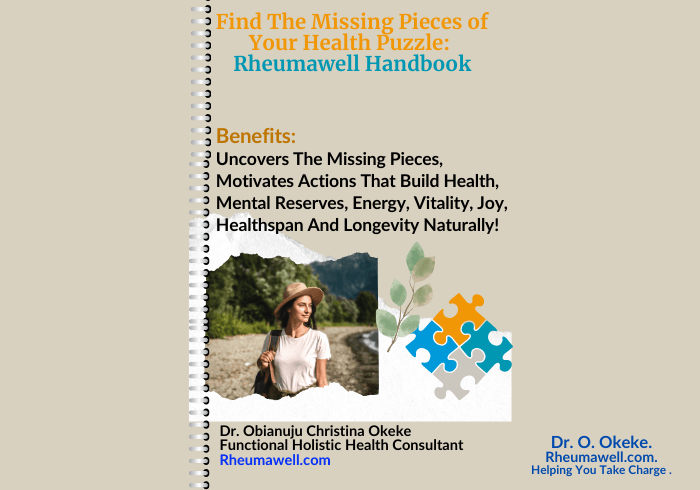

I'm Obianuju ( Say: Oh-BYAA-noo-joo)
If you're 10 out of 10 ready to change your health, you're who I'm looking for.
I only work with highly committed people. Why?
Those are the people who get the best results because they'll do what it takes.
So if you're tired of suffering from joint soreness that won't go away, inflammation, swelling, stiffness, and low energy and ready to take your health to the next level, let us talk about how I can guide you to become your best self.
Free Download: Find The Missing Pieces Of Your Health Puzzle



